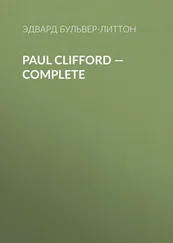Эдвард Бульвер-Литтон - Night and Morning, Complete
Здесь есть возможность читать онлайн «Эдвард Бульвер-Литтон - Night and Morning, Complete» — ознакомительный отрывок электронной книги совершенно бесплатно, а после прочтения отрывка купить полную версию. В некоторых случаях можно слушать аудио, скачать через торрент в формате fb2 и присутствует краткое содержание. Жанр: foreign_prose, literature_19, Европейская старинная литература, foreign_antique, на английском языке. Описание произведения, (предисловие) а так же отзывы посетителей доступны на портале библиотеки ЛибКат.
- Название:Night and Morning, Complete
- Автор:
- Жанр:
- Год:неизвестен
- ISBN:нет данных
- Рейтинг книги:3 / 5. Голосов: 1
-
Избранное:Добавить в избранное
- Отзывы:
-
Ваша оценка:
- 60
- 1
- 2
- 3
- 4
- 5
Night and Morning, Complete: краткое содержание, описание и аннотация
Предлагаем к чтению аннотацию, описание, краткое содержание или предисловие (зависит от того, что написал сам автор книги «Night and Morning, Complete»). Если вы не нашли необходимую информацию о книге — напишите в комментариях, мы постараемся отыскать её.
Night and Morning, Complete — читать онлайн ознакомительный отрывок
Ниже представлен текст книги, разбитый по страницам. Система сохранения места последней прочитанной страницы, позволяет с удобством читать онлайн бесплатно книгу «Night and Morning, Complete», без необходимости каждый раз заново искать на чём Вы остановились. Поставьте закладку, и сможете в любой момент перейти на страницу, на которой закончили чтение.
Интервал:
Закладка:
Edward Bulwer-Lytton
Night and Morning, Complete
PREFACE TO THE EDITION OF 1845
Much has been written by critics, especially by those in Germany (the native land of criticism), upon the important question, whether to please or to instruct should be the end of Fiction—whether a moral purpose is or is not in harmony with the undidactic spirit perceptible in the higher works of the imagination. And the general result of the discussion has been in favour of those who have contended that Moral Design, rigidly so called, should be excluded from the aims of the Poet; that his Art should regard only the Beautiful, and be contented with the indirect moral tendencies, which can never fail the creation of the Beautiful. Certainly, in fiction, to interest, to please, and sportively to elevate—to take man from the low passions, and the miserable troubles of life, into a higher region, to beguile weary and selfish pain, to excite a genuine sorrow at vicissitudes not his own, to raise the passions into sympathy with heroic struggles—and to admit the soul into that serener atmosphere from which it rarely returns to ordinary existence, without some memory or association which ought to enlarge the domain of thought and exalt the motives of action;—such, without other moral result or object, may satisfy the Poet, 1 1 I use the word Poet in its proper sense, as applicable to any writer, whether in verse or prose, who invents or creates.
and constitute the highest and most universal morality he can effect. But subordinate to this, which is not the duty, but the necessity, of all Fiction that outlasts the hour, the writer of imagination may well permit to himself other purposes and objects, taking care that they be not too sharply defined, and too obviously meant to contract the Poet into the Lecturer—the Fiction into the Homily. The delight in Shylock is not less vivid for the Humanity it latently but profoundly inculcates; the healthful merriment of the Tartufe is not less enjoyed for the exposure of the Hypocrisy it denounces. We need not demand from Shakespeare or from Moliere other morality than that which Genius unconsciously throws around it—the natural light which it reflects; but if some great principle which guides us practically in the daily intercourse with men becomes in the general lustre more clear and more pronounced, we gain doubly, by the general tendency and the particular result.
Long since, in searching for new regions in the Art to which I am a servant, it seemed to me that they might be found lying far, and rarely trodden, beyond that range of conventional morality in which Novelist after Novelist had entrenched himself—amongst those subtle recesses in the ethics of human life in which Truth and Falsehood dwell undisturbed and unseparated. The vast and dark Poetry around us—the Poetry of Modern Civilisation and Daily Existence, is shut out from us in much, by the shadowy giants of Prejudice and Fear. He who would arrive at the Fairy Land must face the Phantoms. Betimes, I set myself to the task of investigating the motley world to which our progress in humanity has attained, caring little what misrepresentation I incurred, what hostility I provoked, in searching through a devious labyrinth for the foot-tracks of Truth.
In the pursuit of this object, I am, not vainly, conscious that I have had my influence on my time—that I have contributed, though humbly and indirectly, to the benefits which Public Opinion has extorted from Governments and Laws. While (to content myself with a single example) the ignorant or malicious were decrying the moral of Paul Clifford, I consoled myself with perceiving that its truths had stricken deep—that many, whom formal essays might not reach, were enlisted by the picture and the popular force of Fiction into the service of that large and Catholic Humanity which frankly examines into the causes of crime, which ameliorates the ills of society by seeking to amend the circumstances by which they are occasioned; and commences the great work of justice to mankind by proportioning the punishment to the offence. That work, I know, had its share in the wise and great relaxation of our Criminal Code—it has had its share in results yet more valuable, because leading to more comprehensive reforms—viz., in the courageous facing of the ills which the mock decorum of timidity would shun to contemplate, but which, till fairly fronted, in the spirit of practical Christianity, sap daily, more and more, the walls in which blind Indolence would protect itself from restless Misery and rampant Hunger. For it is not till Art has told the unthinking that nothing (rightly treated) is too low for its breath to vivify and its wings to raise, that the Herd awaken from their chronic lethargy of contempt, and the Lawgiver is compelled to redress what the Poet has lifted into esteem. In thus enlarging the boundaries of the Novelist, from trite and conventional to untrodden ends, I have seen, not with the jealousy of an author, but with the pride of an Originator, that I have served as a guide to later and abler writers, both in England and abroad. If at times, while imitating, they have mistaken me, I am not answerable for their errors; or if, more often, they have improved where they borrowed, I am not envious of their laurels. They owe me at least this, that I prepared the way for their reception, and that they would have been less popular and more misrepresented, if the outcry which bursts upon the first researches into new directions had not exhausted its noisy vehemence upon me.
In this Novel of Night and Morning I have had various ends in view—subordinate, I grant, to the higher and more durable morality which belongs to the Ideal, and instructs us playfully while it interests, in the passions, and through the heart. First—to deal fearlessly with that universal unsoundness in social justice which makes distinctions so marked and iniquitous between Vice and Crime—viz., between the corrupting habits and the violent act—which scarce touches the former with the lightest twig in the fasces—which lifts against the latter the edge of the Lictor’s axe. Let a child steal an apple in sport, let a starveling steal a roll in despair, and Law conducts them to the Prison, for evil commune to mellow them for the gibbet. But let a man spend one apprenticeship from youth to old age in vice—let him devote a fortune, perhaps colossal, to the wholesale demoralisation of his kind—and he may be surrounded with the adulation of the so-called virtuous, and be served upon its knee, by that Lackey—the Modern World! I say not that Law can, or that Law should, reach the Vice as it does the Crime; but I say, that Opinion may be more than the servile shadow of Law. I impress not here, as in Paul Clifford, a material moral to work its effect on the Journals, at the Hustings, through Constituents, and on Legislation;—I direct myself to a channel less active, more tardy, but as sure—to the Conscience—that reigns elder and superior to all Law, in men’s hearts and souls;—I utter boldly and loudly a truth, if not all untold, murmured feebly and falteringly before, sooner or later it will find its way into the judgment and the conduct, and shape out a tribunal which requires not robe or ermine.
Secondly—in this work I have sought to lift the mask from the timid selfishness which too often with us bears the name of Respectability. Purposely avoiding all attraction that may savour of extravagance, patiently subduing every tone and every hue to the aspect of those whom we meet daily in our thoroughfares, I have shown in Robert Beaufort the man of decorous phrase and bloodless action—the systematic self-server—in whom the world forgive the lack of all that is generous, warm, and noble, in order to respect the passive acquiescence in methodical conventions and hollow forms. And how common such men are with us in this century, and how inviting and how necessary their delineation, may be seen in this,—that the popular and pre-eminent Observer of the age in which we live has since placed their prototype in vigorous colours upon imperishable canvas.—[Need I say that I allude to the Pecksniff of Mr. Dickens?]
Читать дальшеИнтервал:
Закладка:
Похожие книги на «Night and Morning, Complete»
Представляем Вашему вниманию похожие книги на «Night and Morning, Complete» списком для выбора. Мы отобрали схожую по названию и смыслу литературу в надежде предоставить читателям больше вариантов отыскать новые, интересные, ещё непрочитанные произведения.
Обсуждение, отзывы о книге «Night and Morning, Complete» и просто собственные мнения читателей. Оставьте ваши комментарии, напишите, что Вы думаете о произведении, его смысле или главных героях. Укажите что конкретно понравилось, а что нет, и почему Вы так считаете.












